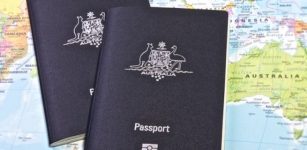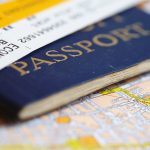No Overseas Travel for Child Sex Offenders

Australia is on the brink of introducing world-first legislation that will stop those convicted of child sex offenders from travelling overseas, in a bid to prevent offending abroad.
Sex tourism has become big business globally, particularly developing nations such as Thailand, Vietnam, Cambodia and other parts of South-East Asia.
In an effort to stop sexual exploitation, the Federal government intends to introduce a blanket travel ban which could come into effect as soon as next week, making it illegal for a range of child sex offenders to travel abroad without the express permission of the government – which will only be granted in exceptional circumstances.
According to statistics from the Australian Department of Foreign Affairs, around 800 registered child sex offenders travelled overseas from Australia last year, with about half travelling to South-East Asia.
The extent of sex tourism
While there are many organisations working to free children from sexual slavery, the extent of the problem can make their goal seem “insurmountable”.
Rob Morris recalls the night he set events in motion that would lead to the establishment of Love 146 – an organisation that rescues children from sexual slavery and works to disrupt global sex trafficking cartels.
“We found ourselves standing shoulder to shoulder with predators in a small room, looking at little girls through a pane of glass”, Mr Morris remembers.
“All of the girls wore red dresses with a number pinned to their front for identification. They sat, blankly watching cartoons on TV. They were vacant, shells.
“Their light had been taken from them. These children… raped each night… seven, ten, fifteen times every night. They were so young. Thirteen, eleven… it was hard to tell. Sorrow covered their faces with nothingness.
“Some of the children were kept and ‘rented’, others were sold – to the highest bidder – for as little as US$70.”
Current laws
There have long been concerns that our laws, as well as enforcement mechanisms in developing countries, are insufficient to stop Australian sex offenders from committing crimes abroad.
Currently, offenders are supposed to inform authorities when they are travelling overseas, but they often neglect to do this.
The Foreign Minister presently has discretion to cancel the passports of child sex offenders, but only at the request of police acting under the direction of state governments.
A number of Australians have already had their passports refused or cancelled in this way.
Complete travel ban
But under the new laws, 20,000 people on the Australian National Child Offender Register will be banned from travelling overseas or holding an Australian passport.
The hard-line stance is the first of its kind. According to Australian government representatives, this is the “strongest crackdown ever” and “no other country has taken such decisive and strong measures to protect children overseas.”
Victorian Senator and former broadcaster Derryn Hinch has been a strong advocate for the legislation. Child protection was one of the cornerstones of his election campaign.
He sees the legislation as the first in a long list of measures designed to protect vulnerable children, both here and abroad.
Concerns
Those who are against the ban see it as yet another measure which isolates and stigmatises those who have already ‘served their time’, making it harder for them to get on with their lives.
They see such measures as merely alienating those who previously offended, making it less likely that they will seek help and integrate into society.
They are also critical of the breadth of the ban, which covers everyone on the register without looking at the nature and seriousness of their offence.
There are additional concerns the ban could lead to more offences being committed within our borders.








